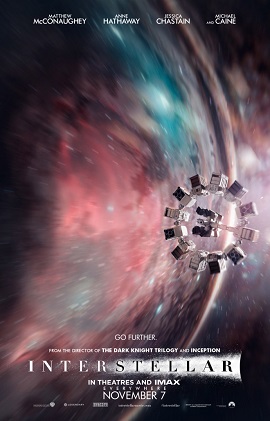 Christopher Nolan is quite possibly my favorite living director. Inception soars among any other film in the last decade; as far as I’m concerned, the fact that it was not nominated for Best Director is one of the most damning omissions in Academy history.
Christopher Nolan is quite possibly my favorite living director. Inception soars among any other film in the last decade; as far as I’m concerned, the fact that it was not nominated for Best Director is one of the most damning omissions in Academy history.
The Dark Knight Rises, though in a different lane, was equally successful, and did Nolan ever “stick the ending” (his own words).
So my expectations for Interstellar were very high.
Nolan does not disappoint. While Interstellar does not rival Inception in terms of sheer cinematic virtuosity, or The Dark Knight Rises in terms of dramatic punch, it charts its own new territory on several dimensions:
- The sound design will take you breath away. Literally. The score itself won’t earn any awards, but I have never experienced sound so carefully and majestically interwoven with the unfolding action and pace of a film. See it for that reason alone, but see it in the best-equipped IMAX theatre you possibly can. (My wife and son and I were fortunate enough to see it in the famous Grauman’s Chinese Theatre in LA, where Christopher Nolan himself had tuned the sound system for showing Interstellar.)
- The feeling not just of space, but of other worlds in space, has never been so depicted so immersively. Interstellar does for deep space what Gravity did for Earth orbit.
- The special effects, and specifically the wormhole at the center of the plot, are innovative enough to have actually advanced science. Read the Wired article for more.
Though the path he takes to get there is sometimes elliptical and tenuous, in the end Nolan’s exploration of the central question—humanity’s existence beyond earth—resonated with me so deeply in the final scenes that afterwards I knew it was one of those films I’d be thinking about on my deathbed (should I be so lucky).
It is hard to ask a film—or a director—for anything more.
